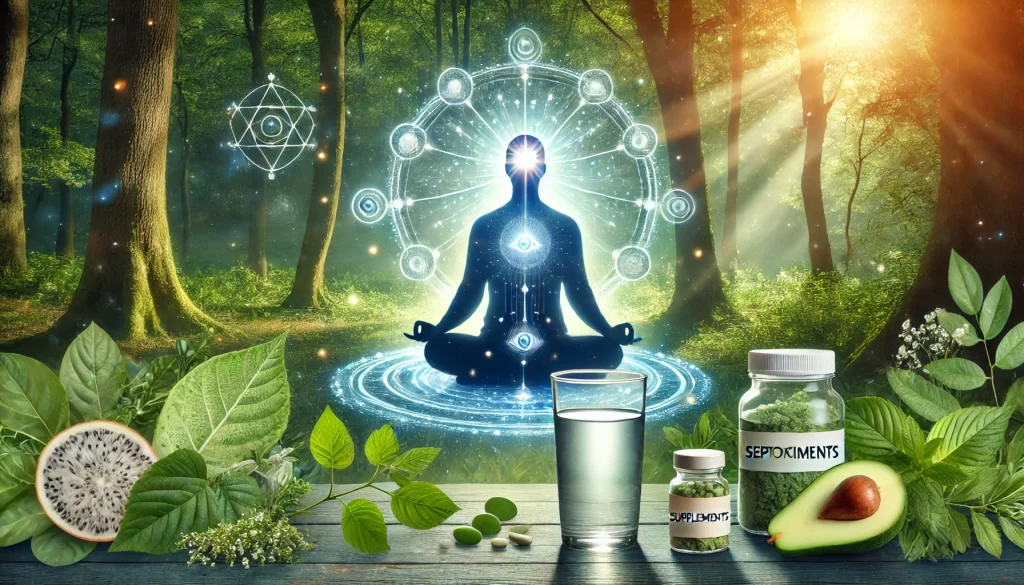
The pineal gland, often referred to as the “third eye,” is a small but mighty part of our brain. It plays a crucial role in regulating our sleep patterns and, according to many spiritual traditions, it is also the gateway to higher states of consciousness. But over time, the pineal gland can become calcified and less effective. That’s where a pineal gland detox comes into play. Let’s explore how you can cleanse and activate this fascinating gland to enhance both your physical and spiritual well-being.
The pineal gland is a tiny, pinecone-shaped organ located in the center of our brain. It produces melatonin, a hormone that helps regulate our sleep-wake cycles. Beyond its biological functions, the pineal gland has been associated with spiritual experiences and enlightenment. Ancient cultures believed that the pineal gland was the seat of the soul and a bridge between the physical and spiritual worlds.
Over time, the pineal gland can become calcified due to various factors, such as exposure to fluoride in drinking water, certain dietary choices, and even aging. Calcification reduces the gland’s ability to function optimally. Detoxifying the pineal gland can help restore its function, leading to better sleep, improved mental clarity, and enhanced spiritual experiences.
Before diving into the detox methods, it’s important to recognize the signs that your pineal gland might need cleansing:
Detoxifying the pineal gland involves lifestyle changes, dietary adjustments, and incorporating specific supplements. Here are some effective methods:
Fluoride is a major contributor to pineal gland calcification. To reduce your exposure:
Certain foods can help detoxify the pineal gland:
Supplements can play a significant role in detoxifying the pineal gland:
The pineal gland responds to light and darkness. To support its natural rhythm:
Meditation and mindfulness practices can enhance pineal gland function by reducing stress and promoting relaxation:
Limiting exposure to toxins can support overall glandular health:
Scientific research on the pineal gland is still evolving. While some studies suggest that fluoride can lead to pineal gland calcification, more research is needed to understand the full impact. However, many of the recommended detox methods also promote general health and well-being, making them beneficial regardless of their direct impact on the pineal gland.
Detoxifying the pineal gland is about more than just cleansing a small part of your brain. It’s a holistic approach to wellness that encompasses mind, body, and spirit. By making mindful choices about what you consume, how you live, and how you manage stress, you can support not only your pineal gland but your entire being.
The pineal gland, often revered as the third eye, holds significant influence over our sleep, mood, and perhaps even our spiritual experiences. Detoxifying this gland can lead to better sleep, improved mental clarity, and a deeper spiritual connection. By reducing fluoride intake, improving your diet, taking supportive supplements, getting adequate sunlight, practicing meditation, and avoiding toxins, you can effectively detoxify and activate your pineal gland.
Embark on this journey with an open mind and a healthy body, and you may find that the benefits extend far beyond just one small gland in your brain. Embrace the process, and experience the transformative power of a pineal gland detox.
By following these principles and making informed choices, you can take steps toward a healthier pineal gland and, ultimately, a more balanced and vibrant life.